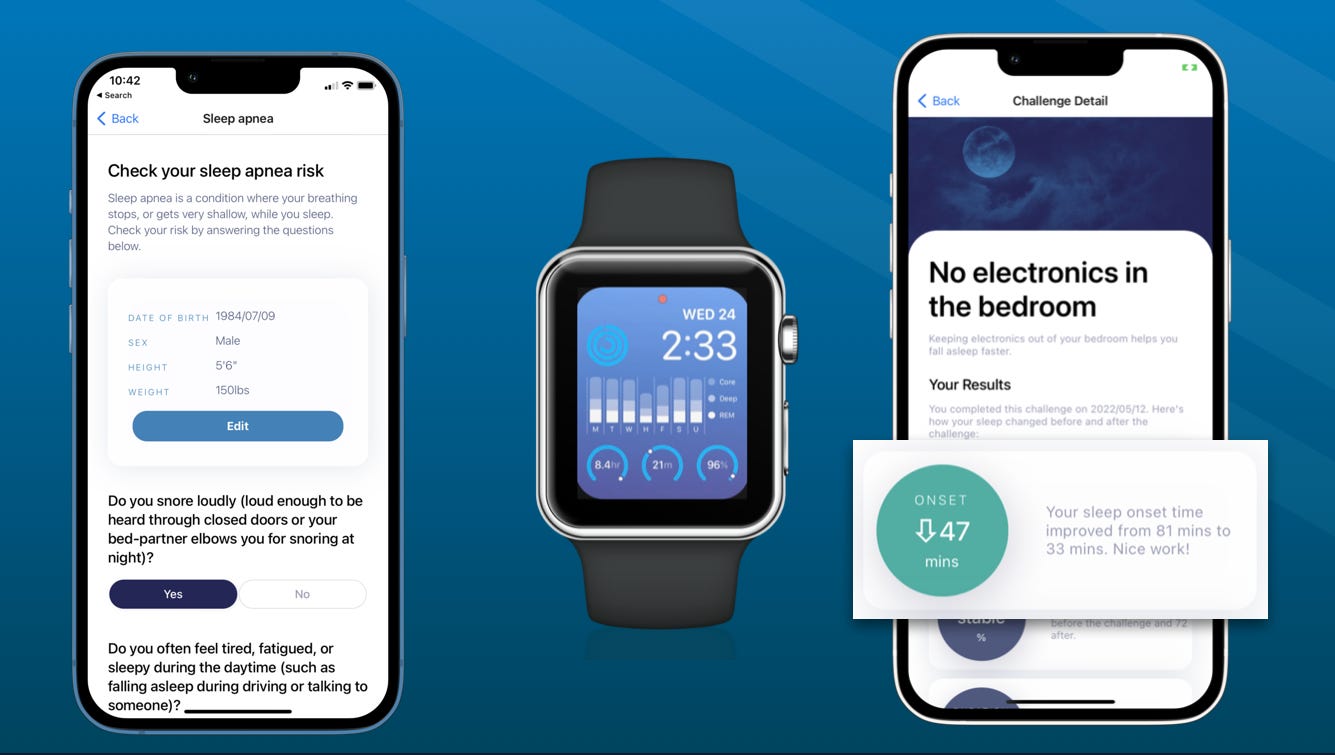Want better sleep quality? The top 3 factors, according to Apple Watch data
Sleep data from your Apple Watch only goes so far—the ultimate goal is to get better sleep. If you've enabled sleep tracking, used an Apple Watch sleep app to measure your sleep quality, and you're wondering what to do next, this article is for you.
The sleep hygiene index is a clinically-validated measure of factors which cause good sleep. It measures both physical comfort of your bedroom as well as bedtime habits. In addition, undiagnosed health conditions like sleep apnea can drive large changes in sleep quality.
All the analysis below is based on data from Empirical Sleep—in particular the quality score, which incorporates information from sleep stages (REM/Core/Deep sleep), heart rate, blood oxygen during sleep, and heart rate variability.
#1 High risk of sleep apnea
In our data set, people at high risk of sleep apnea have quality which is 24% worse, on average, than people with low risk. About 60-80% of sleep apnea is undiagnosed, and you can diagnose sleep apnea with an FDA-cleared, at-home test—which is often covered by insurance, or <$300 out of pocket. If you do have sleep apnea, it's often treated with a CPAP machine.
Want to know your risk of sleep apnea? The checkup screen on Empirical Sleep includes a free assessment based on the clinically-valid STOP-BANG questionnaire, which will tell you if you're at low, medium, or high risk of sleep apnea.
#2 Limit alcohol and caffeine before bed
People who drink alcohol or caffeine within 4 hours of their bedtime have sleep quality that's 5.8% worse. Alcohol and caffeine use is the single largest behavioral factor driving sleep quality. Many people intentionally avoid all caffeine after the early afternoon, and limit alcohol to a 1-2 days per week.
#3 Bed Comfort
Bedroom temperature drives a 3% difference in sleep quality. Most sources recommend about 68°F as a good bedroom temperature. Meanwhile, the physical comfort of your bed drives a 4.5% difference. As a bonus, bed comfort and temperature each improve sleep onset—the time it takes to fall asleep after you're in bed—by 36-40 minutes.



